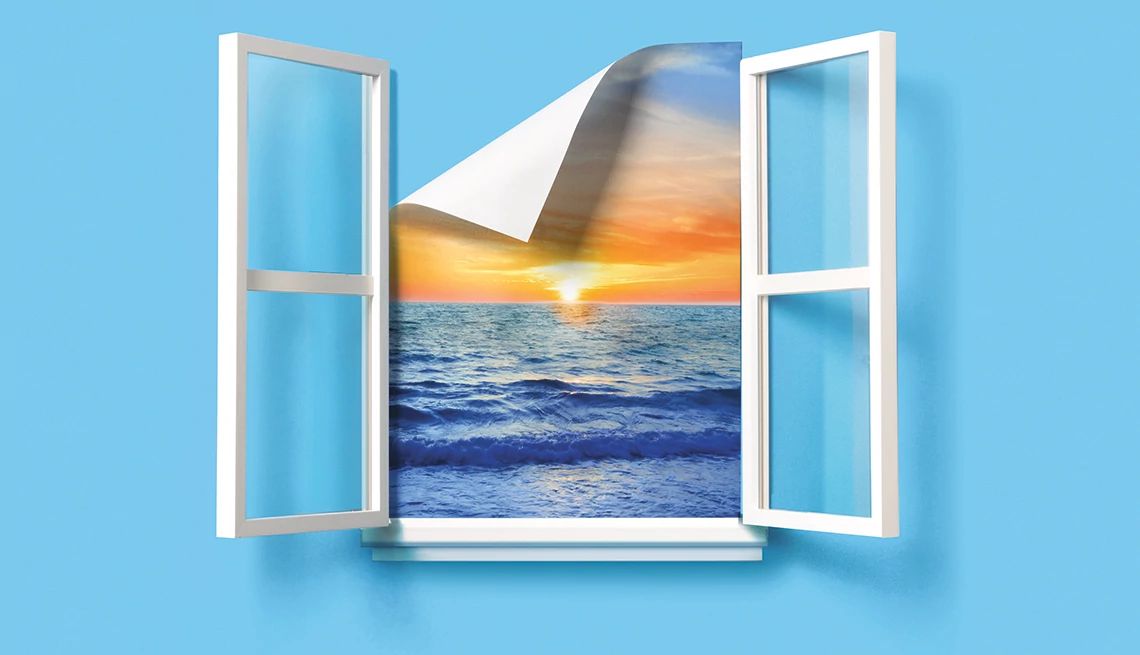AARP Hearing Center


Editor's note: Jonathan Clements died on September 21, 2025, eight months after this article was originally published. He was 62 years old. In a farewell piece posted posthumously to his website, HumbleDollar, he wrote, “Please don’t feel sad for me. … Despite my demise at a relatively young age, I consider myself beyond fortunate."
This won’t come as a big surprise: Dying makes you look at the world in a different way — the world of money included.
Among friends and family, I’m known for hard work and self-discipline. I spent almost two decades at The Wall Street Journal, churning out personal finance columns every week. I saved so diligently that I could have retired at age 51, but instead opted to write books and launch a personal finance website. My self-control extends to exercise: I’ve run or bicycled pretty much every day since 1995.
What was my reward for this life of industry, frugality and clean living? In May 2024, at age 61, I got an out-of-the-blue diagnosis of cancer, the result of a defective gene. The cancer had metastasized from my lung to my chest, liver and brain. My oncologist said I might have a year to live. I’m hoping for a tad longer because my body has responded well to treatment. Still, it’s only a matter of time before cancer gets the upper hand.
More True Stories of Resilience
In the meantime, I find myself wandering through life with a different mindset from almost everybody else. How so? Here are 19 ways that my thinking and my finances have been transformed by my diagnosis.
1. I spent nearly my entire adult life saving like crazy so I could retire in comfort — and yet, faced with my terminal illness, I have no plans to retire. Instead, I want to keep doing what I’ve been doing for years: getting up early, making coffee, exercising, writing and editing, napping after lunch, taking an afternoon walk, enjoying an evening glass of wine. These are the things that bring me pleasure each day, and I have no desire to stop now.
2. Do I regret my decades of frugality, including previously living for 20 years in a modest house I never much liked? Far from it. The money I saved won’t go toward my retirement, but it still bought me a lot of happiness — because it allowed me to avoid financial worries for much of my adult life.
3. I could spend with reckless abandon now, but my old frugality persists. My partner, Elaine, and I had been living together for four years and were already engaged when I got my diagnosis. We married four days later, partly because she won’t qualify for Social Security survivor benefits unless I’m still alive nine months after our wedding. Since then, we’ve taken a few special trips, and we have a few more planned. But I’ll only open up my wallet so far. You won’t find me paying $5,000 to fly business class to Europe.
4. Never an enthusiastic shopper, I’m now even less inclined to buy new things. Last fall, Elaine insisted I purchase new shoes for my son’s December 2024 wedding. I wear those shoes whenever I get the chance — because it’s the only way I could justify the cost.






































































You Might Also Like
Here’s Why It’s Getting More Expensive to Use a Credit Card
Even if you aren’t carrying a balance, you might pay more
How to Know if You Need a Retirement Coach
Working with a pro can help you plot your next big stepMy Biggest Retirement Mistake: Collecting Social Security Early
Claiming benefits at the minimum age can shore up cash flow but comes with a cost